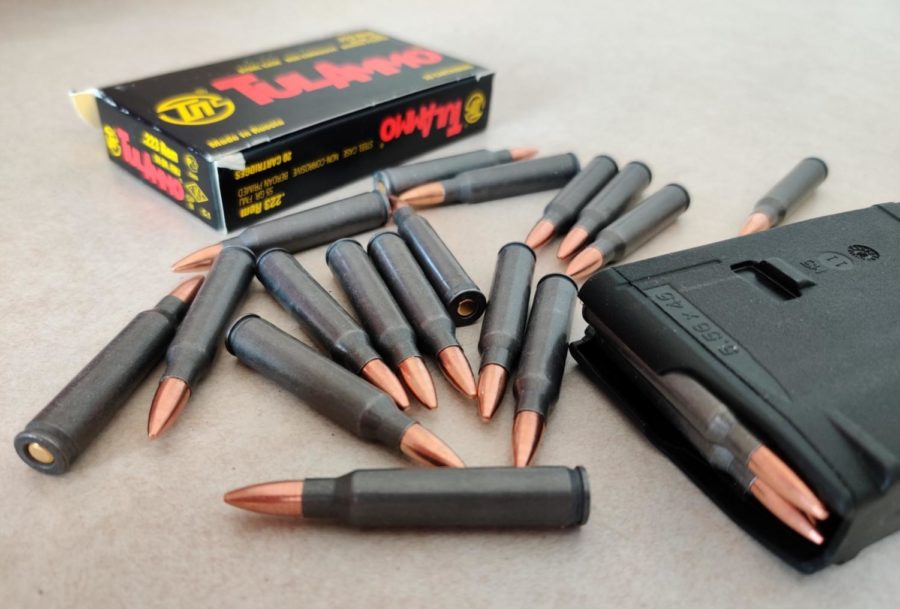Eisenstein: Biden prohibits the importation of Russian ammunition
September 6, 2021
Starting Sept. 7, the U.S. Department of State is no longer approving licenses to import Russian-made ammunition. This choice by the Biden administration cited the Aug. 2020 poisoning of Alexei Navalny. However, many American firearm owners view this decision as a blow to their right to keep and bear arms, and there are a few reasons why.
The U.S. Senate has failed to pass any gun control legislation over the past year. Also, Biden’s nomination for president of the Bureau of Alcohol, Tobacco, Firearms and Explosives (ATF), Giffords‘ senior policy advisor David Chipman, now stands highly unlikely to be confirmed. It is easy to speculate that these repeated losses are frustrating Biden’s administration, and they are seeking whatever gun-controlling measures they can take without needing congressional approval.
You may ask, “Why is this such a big deal? Can’t people simply buy ammunition manufactured elsewhere or domestically?” For most cartridges, yes, but ammunition made by private Russian companies is overwhelmingly the least expensive on the market and plays a massive role in serving demand. Inexpensive ammunition is especially critical now, whereas, since March 2020, there has been a massive shortage of firearms and ammunition due to supply-chain lapses and spikes in demand.
Of all the countries that export ammunition to America, Russia does so the most. About 22 percent of imported ammunition is from Russia. Since last winter, the ammunition market has generally recovered, but current prices are still miles above pre-pandemic prices, and there are still occasional droughts of niche cartridges. Also, specific cartridges, like 9 mm Makarov and 9X39 mm, are almost exclusively made in Russia.
What will the long-term impact be? In the words of the Director of Legal Policy for the Firearms Policy Coalition, Matthew Larosiere, “To understand how serious this is, you have to understand how import licenses work. You don’t get a license to import as much stuff as you want for as long as you want. You identify X rounds of ammunition coming in from Y port at Z time. The licenses are limited in scope, quantity and time.” He speculates that, within three months, the supply of Russian ammunition will run dry. He also speculates that production will likely be relocated to other countries over the next few years, and other foreign companies will slowly bolster their production capacity to pick up the slack.
We all heard before that “Democrats are not trying to take away your firearms,” but this situation makes that ever more difficult to believe. The justification for this import ban is the poisoning of Alexei Navalny, who told the New York Times from his prison cell, “there is no need” to apply sanctions against Russia. While a country poisoning one of its own citizens is despicable, this sanction is too little, too late. To add insult to injury, the Taliban has seized countless American-made firearms and ammunition during their takeover of Afghanistan without a word from the Biden administration. Firearms are useless without ammunition, and actions speak louder than words. Consequently, many firearm owners view this new restriction as a misplacement of priorities and a short-sighted, half-baked punishment for both the nation of Russia and American firearm owners.

















